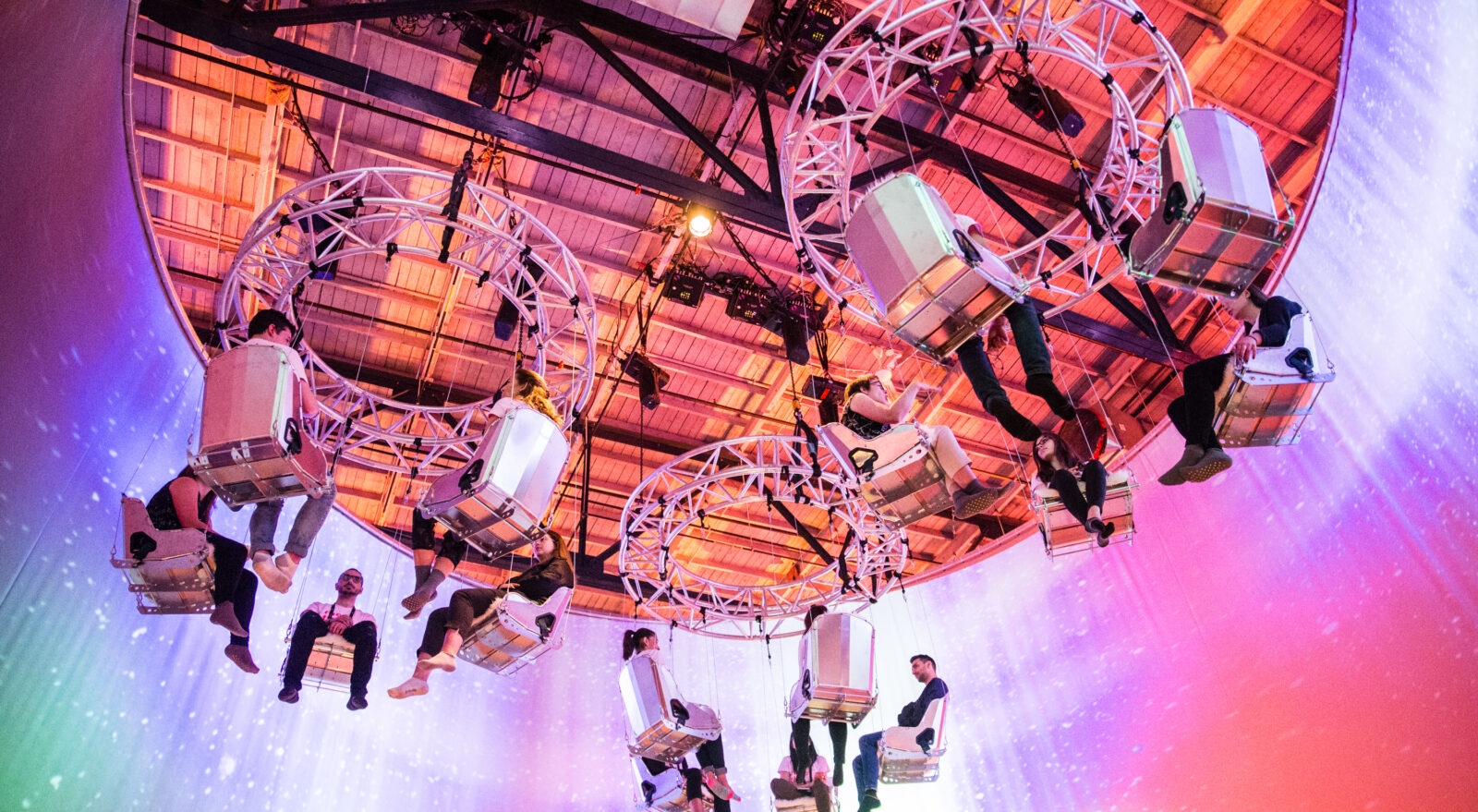Startup city
On the island of Montréal, there are an estimated 2,500 active startups, which provide nearly 8,000 jobs, primarily in the fields of fintech and artificial intelligence (AI). Named one of the world’s 100 most innovative cities in the 2021 Innovation Cities Index, Montréal’s Innovation District (Quartier de l’innovation, or QI) is home to dozens of incubators and accelerators. This is, after all, where innovations like inflight streaming, bus tracking software, Plexiglass, and custom-fit wireless earphones were developed. It’s also where the search engine (before the birth of Google in the mid-1990s), reverse engineering malware, and the intraoperative laser probe for detecting cancer cells were created.
Both the number and the quality of incubators have helped Montréal rank among the top startup ecosystems in the world, according to the 2021 Global Startup Ecosystem Ranking, and make it to the top 15 funding ecosystems worldwide based on early-stage funding and investor activity.
Montréal has also gained a presence as a global gaming hub — ranked fifth in the world, in fact — thanks to its post-secondary institutions fostering fresh talent and workers, whose skills include VR/AR and gamification in video games, health care and education.
Creating connections
Business Events Montréal is a one-stop-shop that believes in making planning easier, by facilitating and strengthening these connections and providing associations with financial and content partners, local industry champions, and identifies local challenges and social impact so events can generate a legacy.
Montréal’s success is a result of the city’s strong infrastructure that stimulates economic development, creating a space where business leaders, academics, visionaries and creative thinkers can come together and share knowledge. The city’s strong reputation as a hotbed of innovation across a variety of sectors has attracted key decision-makers, researchers, entrepreneurs, artists, and highly qualified workers.
One of the best examples of seeing this in action is C2 Montréal, Canada’s creative-business event, which will host its 12th edition in May. The annual event attracts 5,000 attendees from more than 50 countries to the three-day immersive “playground,” which is described as “part conference, part festival and part participatory experience.”
More than 100 speakers and personalities considered experts, innovators and change-makers in their fields will come together to inspire and share ideas with participants from more than 1,000 companies worldwide, ranging from startups to multinational conglomerates. The goal: open the doors to the next generation of Montréal’s business leaders and provoke conversations and experiences that will inspire change.
Culinary capital
Innovation isn’t limited to sectors like AI in Montréal — it extends across all aspects of the city’s culture, including one of the strongest areas: gastronomy. Emerging as a leading culinary destination in North America, this sector is transforming into a driver of economic, social, environmental and cultural development, as well as a hub for creation and innovation.
In 2021, Tourisme Montréal launched the Office montréalais de la gastronomie (OMG, or Montréal Gastronomy Bureau) to help mobilize the city’s culinary and food-related communities. The goal is to drive business opportunities and promote artisanal products, chefs, markets, and the cultural heritage and identity of Montréal and the province of Québec, offering another layer for visiting associations to enrich their stay.
Green future
In 2020, Montréal became the first city in Canada to join the Global Destination Sustainability (GDS) Index, the leading sustainability benchmarking and improvement program for destinations around the world. It’s fitting, then, that last year the city hosted the 15th Conference of the Parties (COP15) to the United Nations Convention on Biological Diversity (CBD), an international meeting bringing together governments from around the world new goals and develop an action plan for nature over the next decade.
The event, originally planned for Kunming, China, was moved given the resurgence of COVID19, and Montréal was selected as the new locale. COP15 attracted 10,000 delegates — 70% of which were from outside Québec — from 196 countries, and the conference was planned in less than four months, as opposed to the usual two years.
The city continues expanding its sustainability efforts: Last year, Montréal was deemed North America’s most sustainable destination on the Global Destinations Sustainability Index 2022, whose winners were announced at the 61stICCA Congress in Krakow, Poland.
Contact
Alain Carbonneau
Manager, Meeting and Convention Sales, Business Events Montréal
A large factor pushing Montréal to the forefront is the city’s new sustainable tourism strategy, which is making changes on economic, social, cultural and environmental levels. One example is Tourisme Montréal’s partnership with Aéroports de Montréal (ADM) and Carbone boréal, a research infrastructure at the Université du Québec à Chicoutimi (UQAC), which has resulted in the creation of a tool to help calculate the carbon footprint of a visit to Montréal. Using this tool, associations can estimate and understand everything from the greenhouse gas emissions from the plane to meals and accommodations — and help offset it through donations to restore the boreal forest.
Event planners can also incorporate ideas into conferences by taking a cue from Montréal’s new Guide to Best Practices for Sustainable Business Events, which offers guidelines and recommendations for planning and hosting sustainable events, such as waste management tips and tricks. They can also make a positive social and environmental impact in the city during their event by using Montréal’s two new directories which list volunteering opportunities as well as organizations collecting donations. With these new initiatives, Montréal is showing how it does business differently — and how the city can help associations with a shared mission for a more sustainable present and future.
